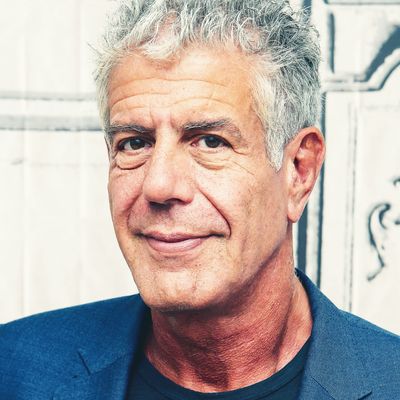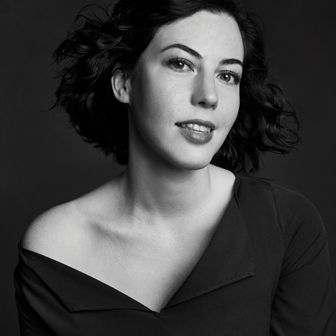
On Friday morning, we awoke to tragic news: Anthony Bourdain — the incomparable chef, insightful writer, ardent supporter of the #MeToo movement, and host of CNN’s beautiful ode to the world, Parts Unknown — had died at age 61.
Bourdain was one of a kind. He burst onto both the culinary and media scenes in 1999, thanks to his legendary New Yorker essay, “Don’t Eat Before Reading This” (which paved the way for his book, Kitchen Confidential). Since then, we spent nearly 20 years getting to witness Bourdain living his life with an unparalleled sense of honesty and curiosity — which he also displayed on his CNN program as he attempted to teach us all about humanity and empathy through food.
The chef had a unique willingness to admit his shortcomings, reexamine past behaviors, and speak out in ways that others refused. He spoke and wrote with a degree of insightfulness that few have ever, or will ever, be able to reach.
Here, a look at some of his most profound quotes.
On his late in life success:
“I should’ve died in my 20s. I became successful in my 40s. I became a dad in my 50s. I feel like I’ve stolen a car — a really nice car — and I keep looking in the rearview mirror for flashing lights. But there’s been nothing yet.”
On the challenge and beauty of traveling:
“Travel isn’t always pretty. It isn’t always comfortable. Sometimes it hurts, it even breaks your heart. But that’s okay. The journey changes you; it should change you. It leaves marks on your memory, on your consciousness, on your heart, and on your body. You take something with you. Hopefully, you leave something good behind.”
On life:
“Life is complicated. It’s filled with nuance. It’s unsatisfying. … If I believe in anything, it is doubt. The root cause of all life’s problems is looking for a simple fucking answer.”
On recognizing how small we all are:
“Maybe that’s enlightenment enough: to know that there is no final resting place of the mind; no moment of smug clarity. Perhaps wisdom is realizing how small I am, and unwise, and how far I have yet to go.”
On his support of the #MeToo movement:
“In these current circumstances, one must pick a side. I stand unhesitatingly and unwaveringly with the women. Not out of virtue, or integrity, or high moral outrage — as much as I’d like to say so — but because late in life, I met one extraordinary woman with a particularly awful story to tell, who introduced me to other extraordinary women with equally awful stories.”
On witnessing the devastation the U.S. has caused certain parts of the world:
“Once you’ve been to Cambodia, you’ll never stop wanting to beat Henry Kissinger to death with your bare hands. You will never again be able to open a newspaper and read about that treacherous, prevaricating, murderous scumbag sitting down for a nice chat with Charlie Rose or attending some black-tie affair for a new glossy magazine without choking. Witness what Henry did in Cambodia — the fruits of his genius for statesmanship — and you will never understand why he’s not sitting in the dock at The Hague next to Milošević.”
On what we leave behind:
“As you move through this life and this world you change things slightly, you leave marks behind, however small. And in return, life —and travel — leaves marks on you. Most of the time, those marks — on your body or on your heart — are beautiful. Often, though, they hurt.”
“I love the sheer weirdness of the kitchen life: the dreamers, the crackpots, the refugees, and the sociopaths with whom I continue to work; the ever-present smells of roasting bones, searing fish, and simmering liquids; the noise and clatter, the hiss and spray, the flames, the smoke, and the steam. Admittedly, it’s a life that grinds you down. Most of us who live and operate in the culinary underworld are in some fundamental way dysfunctional. We’ve all chosen to turn our backs on the nine-to-five, on ever having a Friday or Saturday night off, on ever having a normal relationship with a non-cook.”
On character:
“Skills can be taught. Character you either have or you don’t have.”
He will be missed.





